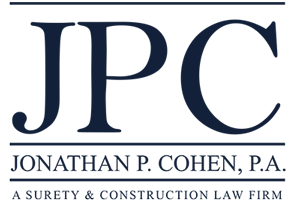Within the construction industry, contracts are used to define the contractual duties of each party, the relevant deadlines, how payments will be structured, and how disputes will be resolved if they arise. In many cases, parties to a construction contract negotiate and include mandatory arbitration clauses, which dictate that disputes arising from the contract must be resolved through arbitration instead of litigation in a court of law.
While arbitration agreements carry some advantages, they also come with some disadvantages you should understand. An experienced lawyer can help negotiate this type of clause to make it more favorable to you. In some cases, negotiating a different method to resolve contractual disputes might be a good idea, including reserving your right to pursue litigation. You can also negotiate a hybrid method where some claims are submitted to arbitration and others are reserved for litigation. Before you sign a contract containing a Florida construction arbitration clause, you should have it reviewed by a Florida construction lawyer at the law offices of Jonathan P. Cohen, P.A.
Understanding Florida Construction Arbitration Agreements
Arbitration is an out-of-court process for resolving disputes. When you sign a contract containing an arbitration clause, you agree to waive your right to litigate any dispute in court arising from the contract. Arbitration is presided over by an arbitrator, a neutral third party, who issues a binding decision. Typically, an arbitrator’s decision will also be fully enforceable and final.
In Florida, the arbitration process is governed by Chapter 682 of the Florida Statutes, the state’s arbitration code. Under § 682.02, Fla. Stat. (2023), arbitration agreements are irrevocable, valid, and enforceable unless a ground exists under equity or law to revoke the contract. Sect. 682.04, Fla. Stat. (2023) further provides that arbitration agreements that provide a method for an arbitrator to be appointed must be followed.
Many form contracts used within the construction industry include clauses requiring arbitration to be conducted under the American Arbitration Association’s (AAA) Construction Industry Arbitration Rules. This organization’s arbitration rules are similar to the Florida Rules of Civil Procedure though not as rigid or detailed. An AAA administrator decides preliminary matters, sets deadlines, schedules the arbitration hearing, and oversees appointment of the arbitrator or arbitration panel.
An arbitration panel typically includes one to three arbitrators selected from a list provided by the AAA. The arbitrators are people who have been qualified as arbitrators and might include attorneys, engineers, architects, or contractors unrelated to the contracting parties. Each side will have a chance to object to names from the list. After that, the AAA will appoint the arbitration panel from the remaining names.
Advantages of Florida Construction Arbitration
Arbitration offers advantages compared to litigation. First, it tends to proceed faster than litigation because arbitration doesn’t contend with a court scheduling backlog. On average, court cases take between 1-2 years to go to trial. This means that disputes can be resolved faster through arbitration. Arbitration is also private. Court cases, by contrast, are a matter of public record. This means parties that go through arbitration won’t have to worry about the details being disseminated to the public. Another advantage is that arbitrators typically are experts in their field, which in the case of construction helps ensure that someone on the panel has extensive knowledge of the construction industry, whereas a judge likely does not possess construction expertise, unless you are lucky and the judge had been a construction litigator before taking the bench. Finally, since arbitration is an out-of-court proceeding, it has relaxed evidentiary standards.
Disadvantages of Arbitration
One of the biggest disadvantages of arbitration is the limited ability to appeal an arbitrator’s decision compared to court decisions. In court, you can appeal a trial court’s decision to the District Court of Appeals and then to the Florida Supreme Court without much limitation. However, the grounds for appealing an arbitration decision are limited as follows:
If someone involved in an arbitration asks the court to, the court must vacate the arbitration award if:
- The award was unfairly influenced by corruption, fraud, or similar tactics.
- The fairness of the arbitration was compromised because:
- An arbitrator who was supposed to be neutral showed bias.
- An arbitrator was involved in corruption.
- An arbitrator acted improperly in a way that harmed the rights of one of the parties.
- An arbitrator refused to delay the hearing when there was a good reason to, didn’t consider important evidence, or conducted the hearing in a way that significantly harmed a party’s rights.
- An arbitrator went beyond their given authority.
- There was no agreement to arbitrate unless the person didn’t object to this at the start of the hearing.
- The arbitration was started without giving proper notice to all parties, which significantly harmed a party’s rights.
Other disadvantages include (1) different discovery rules than court, which means that discovery could be more limited; (2) arbitrated cases don’t necessarily follow precedent; notice the absence of “following the law” in the section on reasons for vacating an award whereas in court, not following the law is the reason why trial orders are appealed; (3) signing an arbitration agreement means giving up your right to resolve your matter in court before a jury or judge.
When Might an Arbitration Agreement Be Deemed Unenforceable?
Both state and federal laws govern arbitration agreements in Florida, including the Florida Arbitration Code and the Federal Arbitration Act (FAA). The FAA applies to contracts involving interstate commerce. Both laws protect the enforcement of arbitration agreements, but there are a few circumstances under which an agreement might be deemed invalid.
For an arbitration agreement to be enforceable, both parties must voluntarily consent. If one party can show they were misled or coerced into signing it, the court might deem the agreement unenforceable. An arbitration clause might also be deemed invalid if its terms heavily favor one side versus the other to such a degree that the terms are oppressive and unfair. Finally, arbitration agreements that would result in a violation of public policy or another law might also be held unenforceable.
Consult a Florida Construction Lawyer
Before signing a construction contract with an arbitration clause, If you are presented with a construction contract that includes a Florida construction arbitration clause, you should consult a Florida construction lawyer at the law offices of Jonathan P. Cohen, P.A. Attorney Jonathan P. Cohen, Esq. has years of experience handling construction law matters and can explain the implications of an arbitration clause to help you decide whether or not to sign it. They can also negotiate the contract terms for you to try to secure more favorable terms and explain whether an arbitration agreement is likely enforceable or not. Call us today to request an appointment at (954) 462-8850.
The information provided in this article does not, and is not intended to, constitute legal advice. The content in this article is presented for general informational purposes only.

